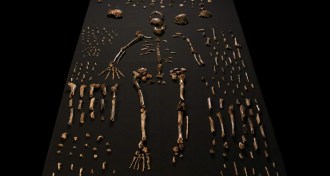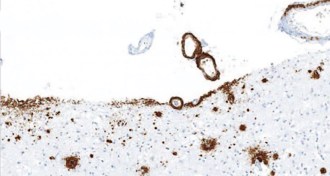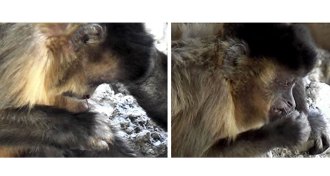Humans
Sign up for our newsletter
We summarize the week's scientific breakthroughs every Thursday.
-
 Archaeology
Archaeology‘Superhenge’ once lined Stonehenge neighborhood
A row of massive, now-buried stones once bordered a site near Stonehenge.
By Bruce Bower -
 Health & Medicine
Health & MedicineClinical trial suggests new blood pressure standard
Preliminary results from a clinical trial suggest lower blood pressure targets could reduce rates of cardiovascular diseasae.
By Meghan Rosen -
 Health & Medicine
Health & MedicinePlant spills crucial details for making cancer drug
By injuring the Himalayan mayapple, researchers worked out how the plant makes an important ingredient in a common cancer drug.
By Beth Mole -
 Health & Medicine
Health & MedicineLess vitamin D and melatonin bad for multiple sclerosis
Vitamin D and melatonin play important roles in multiple sclerosis.
-
 Anthropology
AnthropologyFossils suggest new species from human genus
Undated South African cave fossils may reveal a new species in the human genus.
By Bruce Bower -
 Anthropology
AnthropologyImmortality and more in reader feedback
This week in reader feedback: Immortality and tracing ancient humans.
-
 Neuroscience
NeuroscienceMisfolded proteins implicated in more brain diseases
Alzheimer’s, other disorders show similarity to Creutzfeldt-Jakob disease and other prion infections.
-
 Anthropology
AnthropologyMinutes after encountering danger, lemurs yawn
Madagascar primates yawn within minutes of encountering threats.
By Bruce Bower -
 Animals
AnimalsA monkey uses a stick to pick its teeth and nose
A wild bearded capuchin monkey in Brazil was caught using tools to pick its nose and teeth.
By Erin Wayman -
 Environment
EnvironmentLatest BPA replacement seeps into people’s blood and urine
Replacements for BPA called BPS and BPSIP may raise health risks for cashiers.
By Beth Mole -
 Health & Medicine
Health & MedicineWith flibanserin approval, a complicated drug takes the spotlight
The Food and Drug Administration has approved the first drug to increase women’s sexual desire. But whether the benefits outweigh the side effects depends on who you ask.
-
 Health & Medicine
Health & MedicineHow farm life can prevent allergies
Farm dust prevents allergies by turning on an anti-inflammatory enzyme in the cells lining mice’s lungs.
By Meghan Rosen